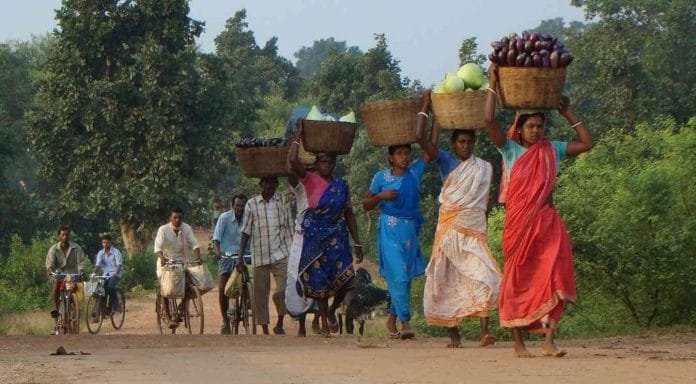The government has shown reluctance in carrying forward a rural development fellowship scheme started by the UPA to facilitate short-term lateral entry.
New Delhi: The BJP-led dispensation recently opened up doors for lateral entry in the government to invite outside talent, but it has been reluctant to continue with an initiative started by the previous UPA government on similar lines — The Prime Minister’s Rural Development Fellowship.
Announced in September 2011 by the Congress-led government, the fellowship aims at inducting young professionals for short durations at the district administration level in 17 states, including in Left Wing Extremism (LWE)-affected areas and the north-eastern states.
Even though the initial plan was to have a fresh batch every second year for the three-year fellowship, the last batch of fellows was inducted in April 2014. The first batch, inducted in 2012, had graduated in two lots in June and September 2015, but a new batch to replace it was not brought in. Now, with the April 2014 batch also having completed its tenure last year, it effectively means the scheme lies in suspended animation.
Similar initiative
The PMRDF fellows are meant to improve programme delivery and serve as ‘development facilitators’. The idea is for them to serve as an interface between the administration and marginalised sections and work closely with district collectors. The fellows, between the age of 22 and 27 years and at least graduates, are selected through a pan-India process — the All India Common Entrance Test (AICAT) — which includes a written exam and personal interviews.
In the final year of the fellowship, a PMRDF fellow is required to spend the entire period in public service as a paid full-time employee of the State Rural Livelihood Mission.
The fellows are paid Rs 75,000 every month with a 10 per cent hike in subsequent years.
Unlike government officials who come through the civil services, these fellows are mostly professionals or graduates/post-graduates from sectors like engineering, development and law, among others, who are keen to work with the government on development issues by using their expertise.
This is precisely the idea behind the BJP government’s recent move to invite lateral entry at the joint secretary level of ‘talented and motivated’ individuals on a three-year contract, extendable up to five years based on performance.
PMRDF, therefore, was yet another method to facilitate short-term lateral entry in the government, but has not been carried forward by the current government.
Revised programme
In February 2016, Prime Minister Narendra Modi interacted with 230 PMRDF fellows and called for people’s involvement in bringing changes in rural areas. The division concerned in the rural development ministry was directly contacted by the PMO then, which organised an interaction between the prime minister and the fellows who had graduated, and those still pursuing the fellowship. This was taken as an indication of the PM’s willingness to push the initiative.
Sources in the government, however, say the prime minister believed the scheme in its current form had not worked effectively.
The ministry has been trying to fine-tune the programme based on the review report of an expert committee submitted in 2014. No definite time-frame, however, has been set and with this term of the BJP government due to end early next year, it seems unlikely that the scheme would see any concrete movement by then.
“We are working on a revised programme after an evidenced based analysis of the earlier programme. The intent is to make it even more impactful in improving the well being of poor households,” a senior official in the ministry said.
“The PMRDF pioneered the introduction of talented professionals at levels of government where they could contribute meaningfully towards the implementation of key programmes. However, the BJP’s reluctance to continue it demonstrates that the much-touted entry of laterals is yet another jumla,” said Muhammad Khan, Congress spokesperson, who was also Officer on Special Duty in the ministry when PMRDF was launched.
Fellowship issues
The first PMRDF batch had inducted 150 fellows, while the second took in 160. In the first batch, the fellows were placed only in LWE-affected districts, but the second edition was expanded to the Northeast and Jammu and Kashmir as well.
The scheme initially faced several teething troubles, including resistance at the district administration level as well as lack of clarity on the exact role of the fellows. The youngsters often complained of not being involved by district level officials, while the officials said they were confused about how to utitlise the fellows, especially given the sensitive nature of regions.
The fellows are also extremely vulnerable, a fact that was highlighted with the abduction of one, along with other government officials, in early 2014 in Jharkhand. Earlier this month, a former PMRDF fellow was among five arrested in connection with the January Bhima-Koregaon riots for their alleged Maoist links.






